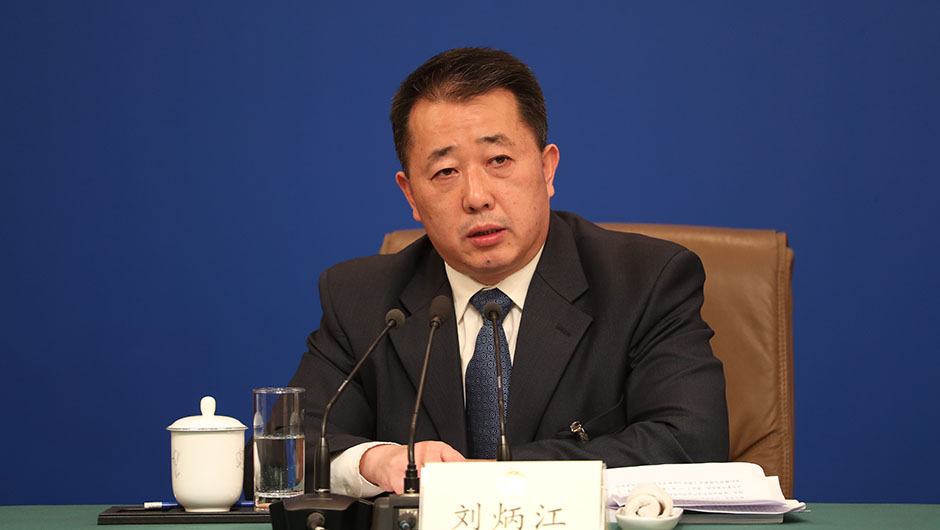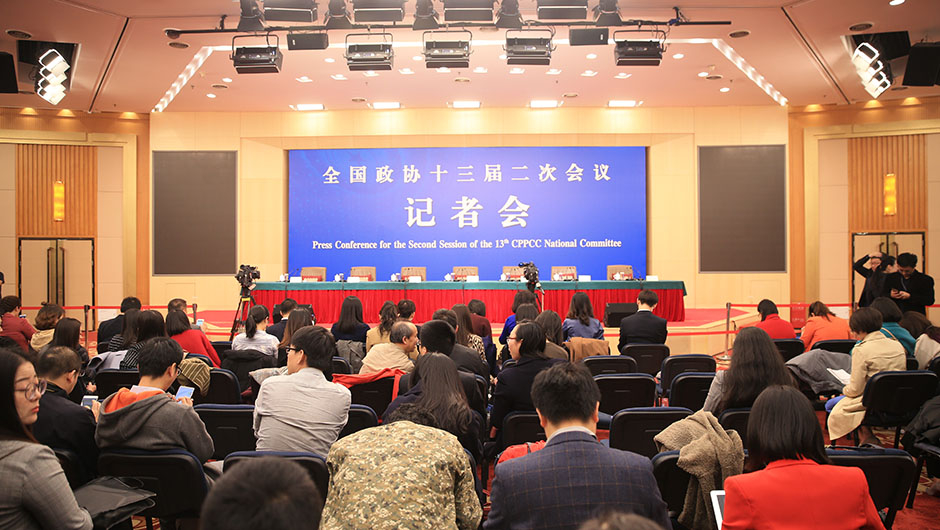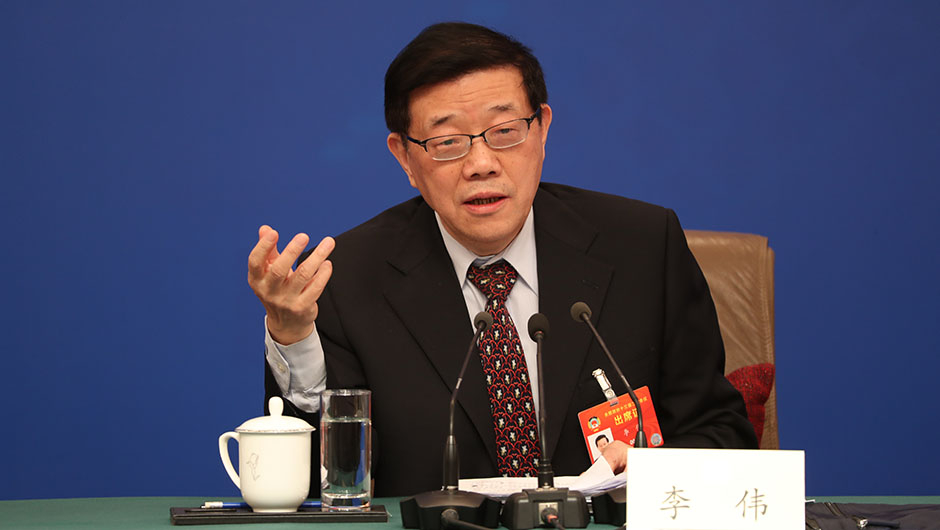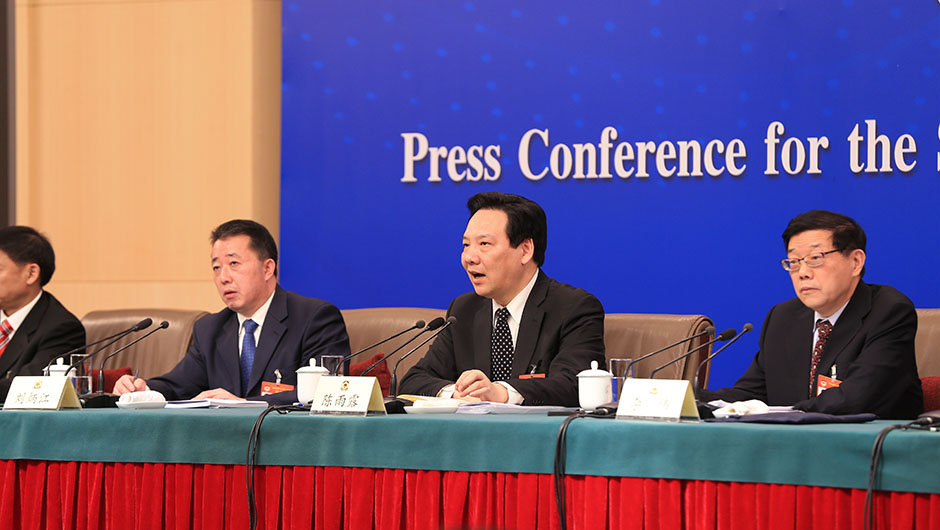
Environment
19:03, 05-Mar-2019
CPPCC member confident in 'smog war'
Updated
07:23, 08-Mar-2019
By Gong Zhe

China will win its war against smog, said Liu Bingjiang, national political adviser or member of the Chinese People's Political Consultative Conference (CPPCC).
"We said it and it will be done. You'll see," Liu told a press conference on Tuesday.
Liu leads China's efforts against air pollution. He works for the Ministry of Ecology and Environment (MEE) in the Chinese government.
"It seems like the smog topic is still hot," he said. "We all hate the smog from the bottom of our hearts. And this hatred united us."
Liu listed some data in 2018 to show his confidence.

CPPCC press conference on March 5, 2019. /Xinhua Photo
CPPCC press conference on March 5, 2019. /Xinhua Photo
"The portion of coal in China's energy consumption fell under 60 percent for the first time. A total of 4.8 million families now use clean energy for winter heating," he said.
"You can feel it. People are showing off pictures of blue skies," he added.
Liu also stated confidence in achieving the binding targets in 2020.
"Back in 2017, experts and media fellows said it's impossible to reduce PM2.5 in Beijing from 73 to 60μg," he explained. "But we managed to make history."
"We also have more than 2,000 experts to study the course of the smog and we are now basically clear," he added. "That's why we have smog forecast now."
Other CPPCC members also talked about environment efforts at the press conference.
Li Wei, head of the Development Research Center of the State Council, suggested to look at the pollution problem from a broader perspective, and coordinate the efforts against air, water and soil pollution.
Li also listed four key points to promote clean energy.

Li Wei lists key points of China's clean energy strategy. /Xinhua Photo
Li Wei lists key points of China's clean energy strategy. /Xinhua Photo
1. Pushing factories in big cities to use natural gas and electricity instead of coal.
2. Finding new technologies to utilize heat generated by coal power plants.
3. Persuading the transportation sector to use more ships and trains instead of gasoline/diesel vehicles.
4. Requiring developed areas to use more water, wind and solar power to generate electricity.
Deputy head of the central bank Chen Yulu said China is the first country in the world to use government powers to push forward green finance, which means lending more money to environmentally friendly companies.
"The green loan is scaling up fast. The 21 major banks lent eight trillion RMB of green loans in 2018. That's 16 percent more than that of 2017," he explained.

Chen Yulu (C) explains China's green finance development. /Xinhua Photo
Chen Yulu (C) explains China's green finance development. /Xinhua Photo

SITEMAP
Copyright © 2018 CGTN. Beijing ICP prepared NO.16065310-3
Copyright © 2018 CGTN. Beijing ICP prepared NO.16065310-3